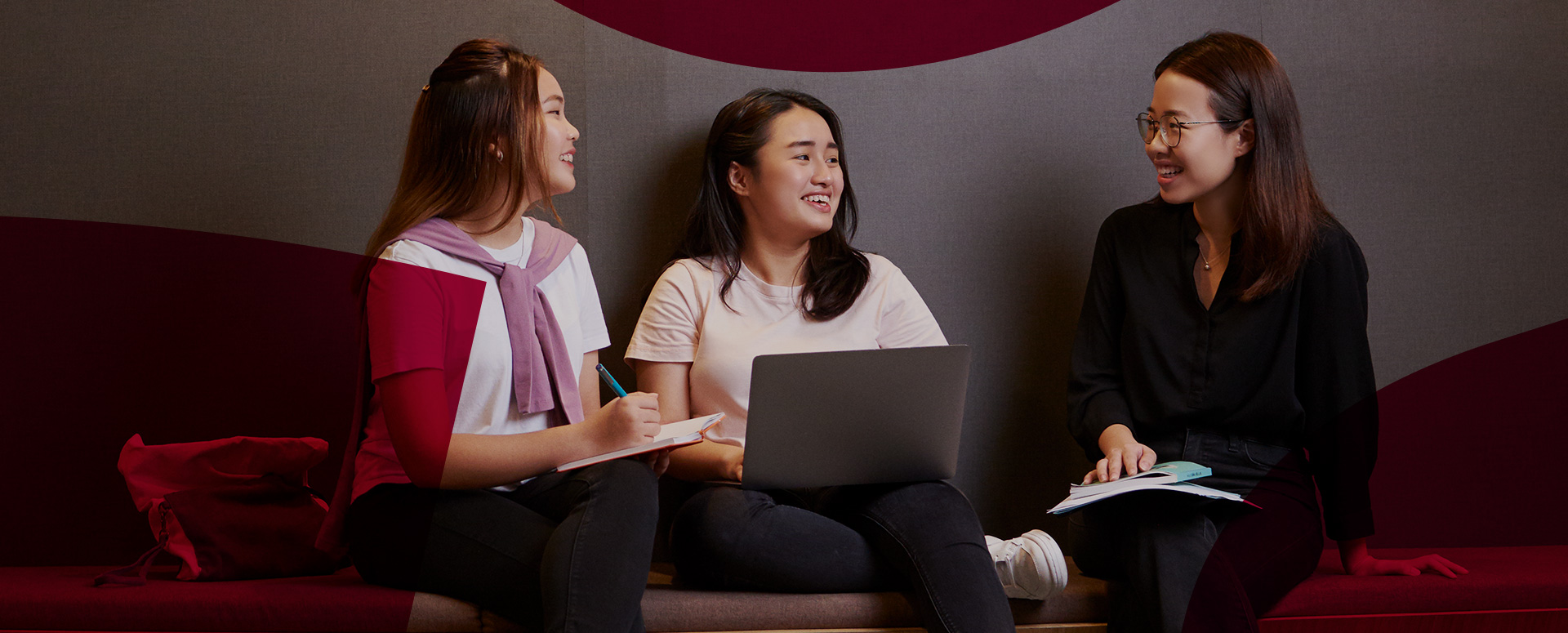
Phang Jia Wen
What made you choose to pursue a degree in Biomedical Science?
Since I was young, I had a strong interest towards science and spent more time on this subject, particularly biology and healthcare related issues. I tend to ask countless questions on the reasons and processes especially towards the human body and how diseases occur. That gradually manifested to genuine interest in the scientific and medical sector. Furthermore, I always hope to do something that will benefit the community especially after Covid-19.
Was there a particular moment/experience that sparked your interest in science/healthcare?
I used to watch medical shows and got curious about the processes and admired how the people in healthcare were so passionate about what they do despite the long working hours. Their commitment inspired me to pursue a path where I could make a similar impact.
What made you choose The University of Newcastle, Australia (UON) over other institutions?
I feel UON modules were more in depth than other institutions and covered topics such as cancer biology and neuroscience. Other institutions may teach these topics as part of a module but it is offered as a standalone under UON’s Biomedical Sciences course. UON also allows students to do an exchange programme and/or internship in their final year in Australia.
The modules are designed in a progressive sequence, each building on the previous module to strengthen both technical skills and their real-world applications. Through structured learning, we were taught of how to think critically and ask the right questions along the way. Group projects and hands-on components further emphasised the value of collaboration and teamwork.
How has your learning experience been so far for the course?
It’s definitely a challenging module that demands time, effort, and consistent self-revision beyond classroom hours. Instead of relying solely on rote memorisation, I found that truly understanding the concepts made the learning process more manageable. Interestingly, the difficulty of the subject helped build camaraderie. M y classmates and I often formed study groups to support one another whenever we faced difficulties.
For example, I particularly enjoyed the anatomy module. Although it was one of the most challenging foundational subjects I’ve taken, it was also incredibly fulfilling. The module requires a solid understanding of both theoretical knowledge and key concepts, with a significant amount of content to memorise and internalise.
What made the learning experience even better was the strong support system in place. The lecturers are not only experienced but also approachable, often breaking down complex topics into simple, digestible parts. Dr Lisa Ho, in particular, stood out. She often uses visual aids effectively to make difficult concepts easier to grasp. She’s a passionate and down-to-earth educator who genuinely cares about her students, always willing to go the extra mile and share her knowledge generously.
How would you describe the student life and learning environment at PSB Academy?
The student life is vibrant if you join events and clubs. The campus facilities are clean and modern, overlooking Marina Bay. There is also a diverse student population from various countries which allowed me to mingle people from other countries with different background and cultures.
Beyond academics, I’m actively involved in student life as part of UON’s Student Council Executive Committee and also serve as a PASS Leader. Through these roles, I’ve helped organise various events, including orientation programmes and year-end celebrations, which made me grow and form bonds with people from different backgrounds.
Do you feel that the course structure has broadened your horizon in the field of biomedical science?
The course made me realise the wide range of career options available in the biomedical field and broadened my perspective on clinical and research studies. It has shifted my mindset that working in the biomedical industry would translate to donning a lab coat and working in a lab upon immediate graduation. However, there are many opportunities out there in healthcare, public health and diagnostics. I appreciated how the modules are designed in a way that shows everything is linked back to industrial real-world applications. Hence, the course is structured to develop critical thinking skills and guide you through a logical, step-by-step approach when tackling scientific problems.
What advice would you give to someone considering a Bachelor of Biomedical Science from UON?
My advice is simple: follow your heart and pursue what truly interests you. I always remind myself that as long as you’re happy with your choices, that’s what matters most. It does take time and dedication to master the concepts, but the journey is rewarding—and the career possibilities go far beyond just working in a lab or hospital.
To sum up your experience at UON in one sentence, what would it be?
Honestly, it has been a wholesome and enriching experience, one that not only helped me grow academically but was also made genuinely fun and memorable by the amazing people I’ve met along the way.




 TOP
TOP
